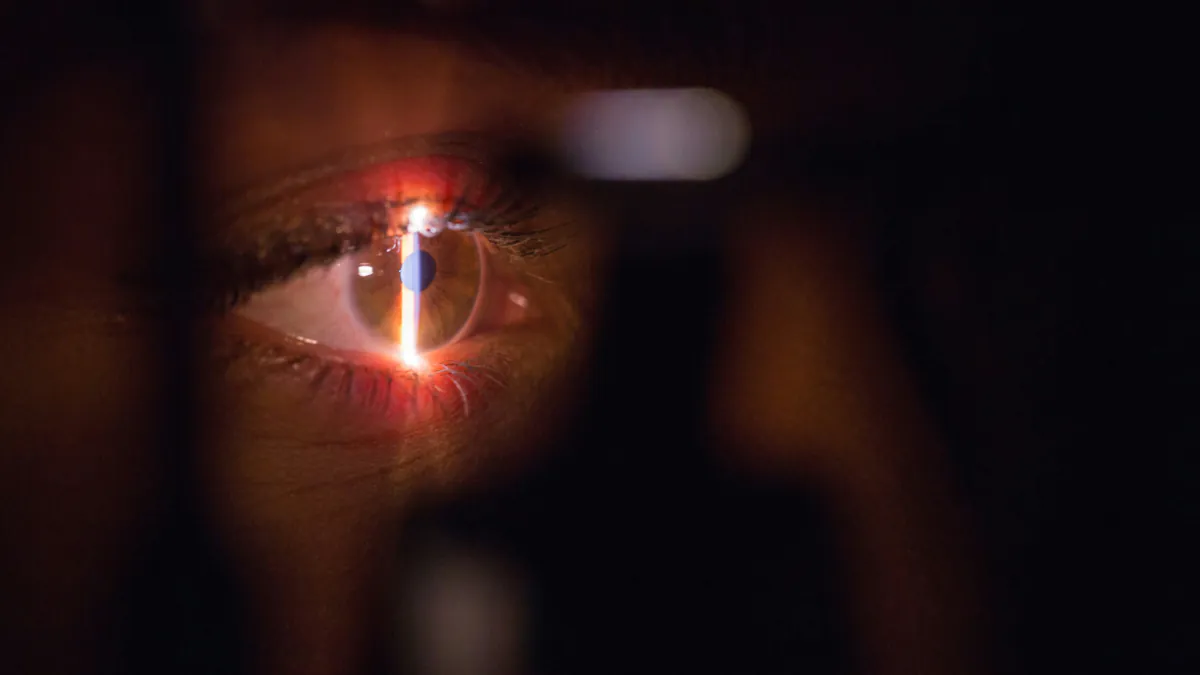Every week, we put the spotlight on five carefully selected university-linked startups. This time, we have eye drops to prevent vision loss for diabetes patients, a graphene-based sensor to detect bacteria and viruses in food, an innovative prosthetic foot, a gold-based therapy for brain cancer, and an investment in a Kenyan e-commerce platform from somewhere far away.
Do you have a spinout you’d like to be considered for the Friday Five? Email us!
Aspecthera has its eyes on diabetic retinopathy
Aspecthera is working on an eye drop treatment for the early stages of diabetic retinopathy, which currently requires injections directly into the eye every few weeks.
Spun out of the University of Tasmania, the Australian company has received A$500,000 from the Targeted Translation Research Accelerator programme for Diabetes and Cardiovascular Disease, delivered by nonprofit MTPConnect (it’s one of 12 startups that received capital).
The money will go towards the development of Aspecthera’s therapy, which aims to protect the blood vessels in the eye against inflammation and leakage – which contribute to vision loss in patients living with diabetes.
The drug development is being led by Nuri Guven, an associate professor in the School of Pharmacy and Pharmacology, together with Jason Smith, a professor in chemistry in the School of Natural Sciences. Philip Young in the university’s tech transfer office, InVent, is supporting them.
Axiles takes a first step towards series A
Axiles Bionics has raised an initial 6€ million tranche towards a targeted 8€ million series A round to begin selling its biomimetic prosthetic foot, Lunaris, globally.
A spinout from the Vrije Universiteit Brussel, Axiles picked up the money from a group led by private equity fund PE Group, with contributions from finance&invest.brussels, the EIC Fund, and assorted angel investors. Axiles’ management team also invested.
Lunaris combines adaptive mechanics with embedded artificial intelligence to create natural motion. It has received regulatory approval in the EU and the US, and is covered by health insurance in multiple countries.
In addition to supporting international sales efforts, the series A round will also enable Axiles to drive forward the development of a next-generation version of Lunaris.
LayerLogic detects food contamination
Spun out of the Chalmers University of Technology last year, LayerLogic has developed a portable biosensor that can detect food-borne pathogens. The sensor uses graphene field effect transistors that are modified through the binding of receptor molecules specific to the desired target. The portable device’s sensitivity, says LayerLogic, rivals the PCR test and delivers a result within minutes, rather than the days it takes other existing technologies.
The technology is based on research in the Department of Quantum Device Physics, Microtechnology, and Nanoscience.
LayerLogic raised 470,000€ in pre-seed funding this week to complete the final stages of product development and to deploy its biosensor in operational food production environments.
Scientifica Venture Capital led the round, which follows LayerLogic’s participation in the venture capital firm’s Super Sapiens Europe programme.
Orinova strikes gold in the fight against cancer
SATT Sayens, one of France’s regional tech transfer offices, has officially unveiled Orinova, a spinout from the Université Marie et Louis Pasteur. The spinout which was incorporated late last year but is commercialising technology that’s been in development since 2019.
Orinova’s cancer treatment combines gold nanoparticles and chemotherapy molecules to treat certain radioresistant cancers such as glioblastoma. Specifically, Orinova’s approach uses the gold nanoparticles as a radiosensitiser (an agent to make cancer cells more sensitive to radiotherapy) and combines this with a chemotherapy molecule. The radiosensitiser and molecule are administered as one drug.
Preclinical studies showed that the treatment significantly expanded the lifespan of the animals.
Peach Cars picks up $5 million from an unexpected place
The noteworthy thing about Peach Cars isn’t so much its business model – an online platform for second-hand vehicles – but the fact that it’s a Kenya-based company that’s raised money from an unexpected investor: University of Tokyo Edge Capital Partners (UTEC), a venture capital arm for the Japanese institution.
Hiroaki Ohta, general partner of another Japanese university venture fund, Waseda University Ventures, took part in a private capacity, as did Peter Kenevan, head of Japan at PayPal, and Shintaro Yamada, the founder and CEO of Japanese e-commerce platform Mercari.
The $5 million seed round is, according to Peach Cars, one of the largest seed rounds for an African mobility startup. The money will allow Peach Cars to grow its team, expand its technology platform and grow its business.
So, why this interest from Japan? Well, Japanese cars already make up 80% of the vehicles on Kenyan roads, and the investment is a play to bring more Japanese automotive expertise to the African nation, says UTEC principal Kiran Mysore, who’s joined the Peach Cars board of directors.
It’s not the first time UTEC is seeking opportunities far from its homeland. Its portfolio also includes, for example, UK-based Oxford Quantum Circuits. And the University of Tokyo is no stranger to building unusual relationships: its other investment unit, UTokyo Innovation Platform backed the university venture fund of Kanazawa University earlier this month, as we reported.
If you have a spinout or startup with a university link that you’d like considered for the Friday Five, don’t forget to email us!
This list is for informational purposes only. It does not constitute investment advice.



